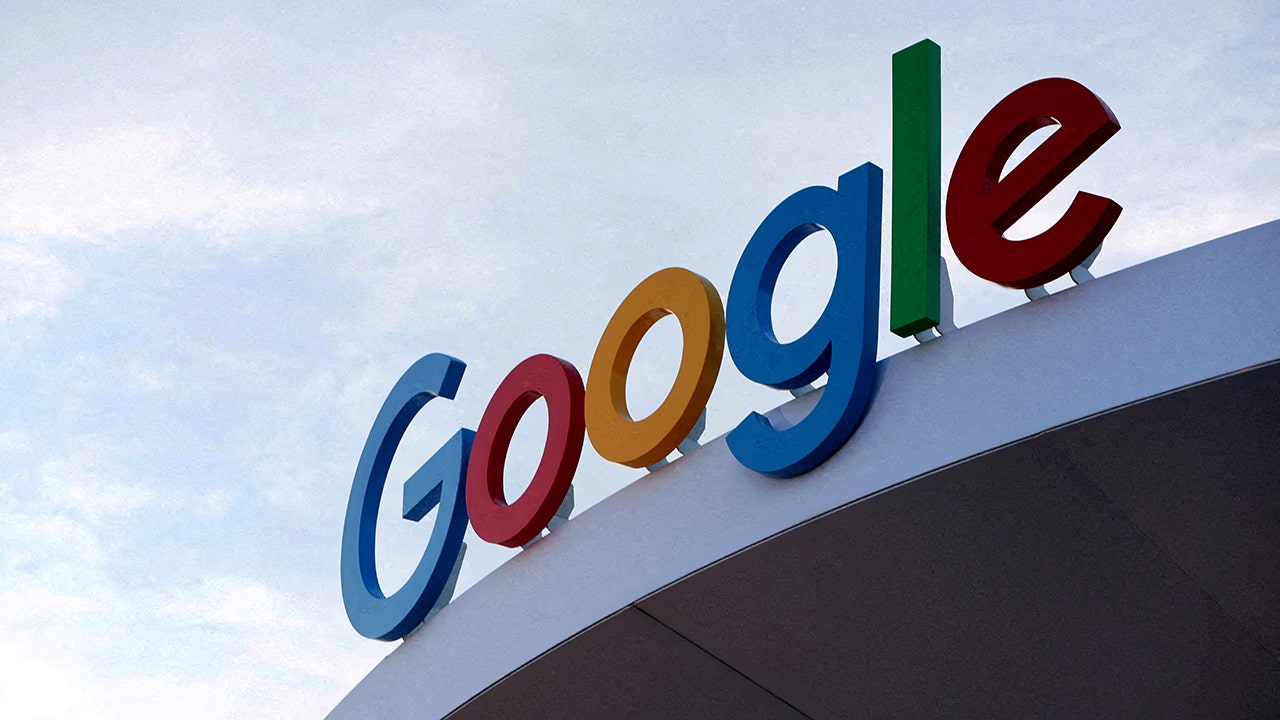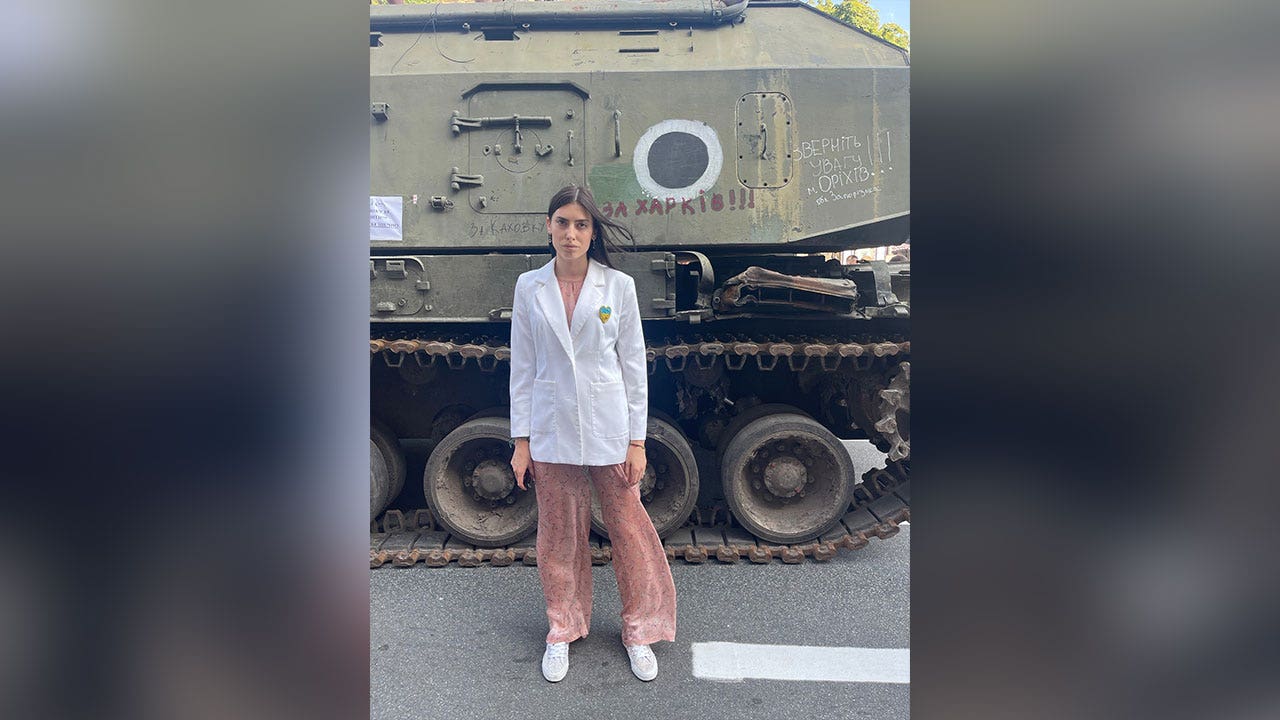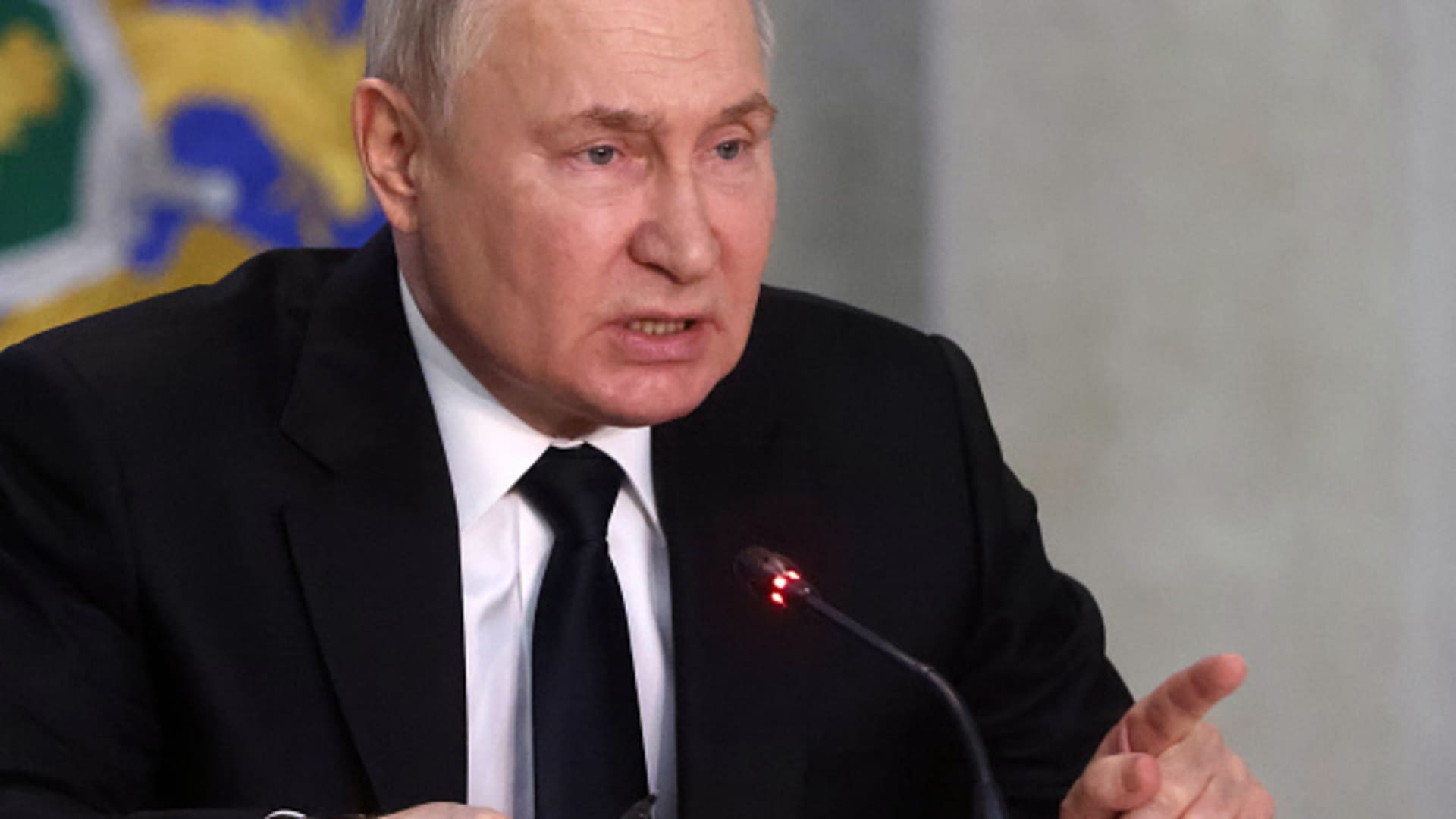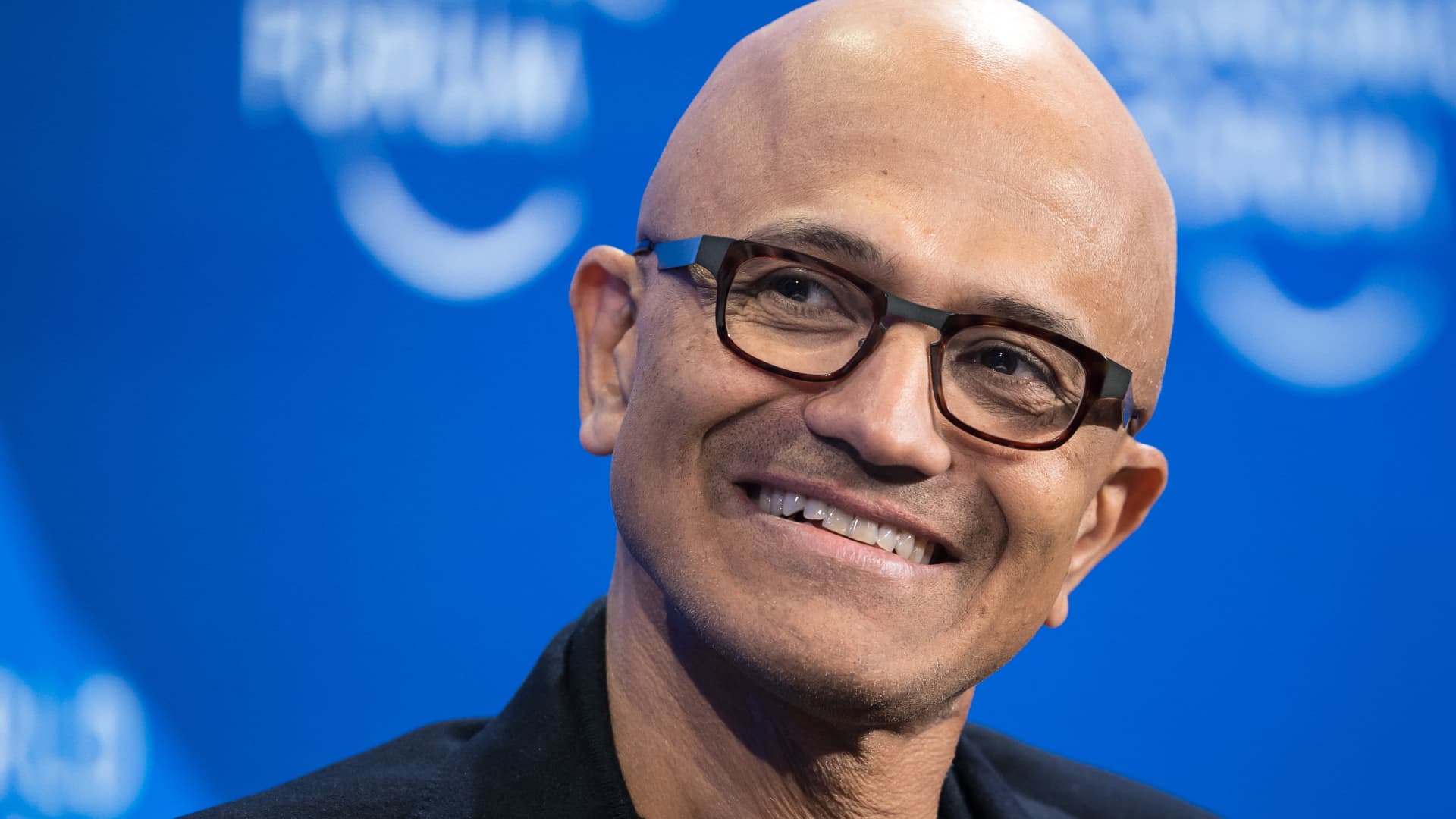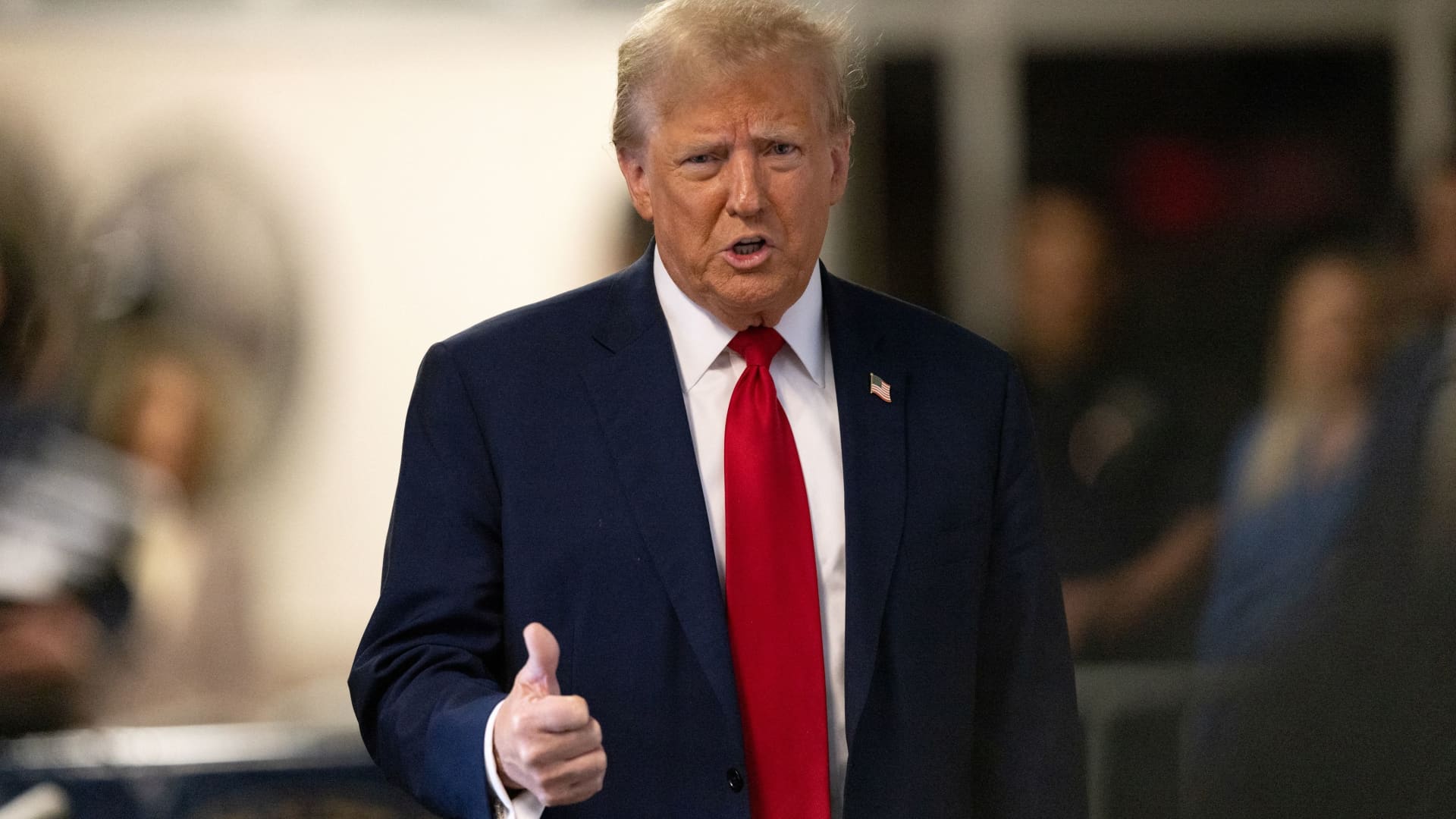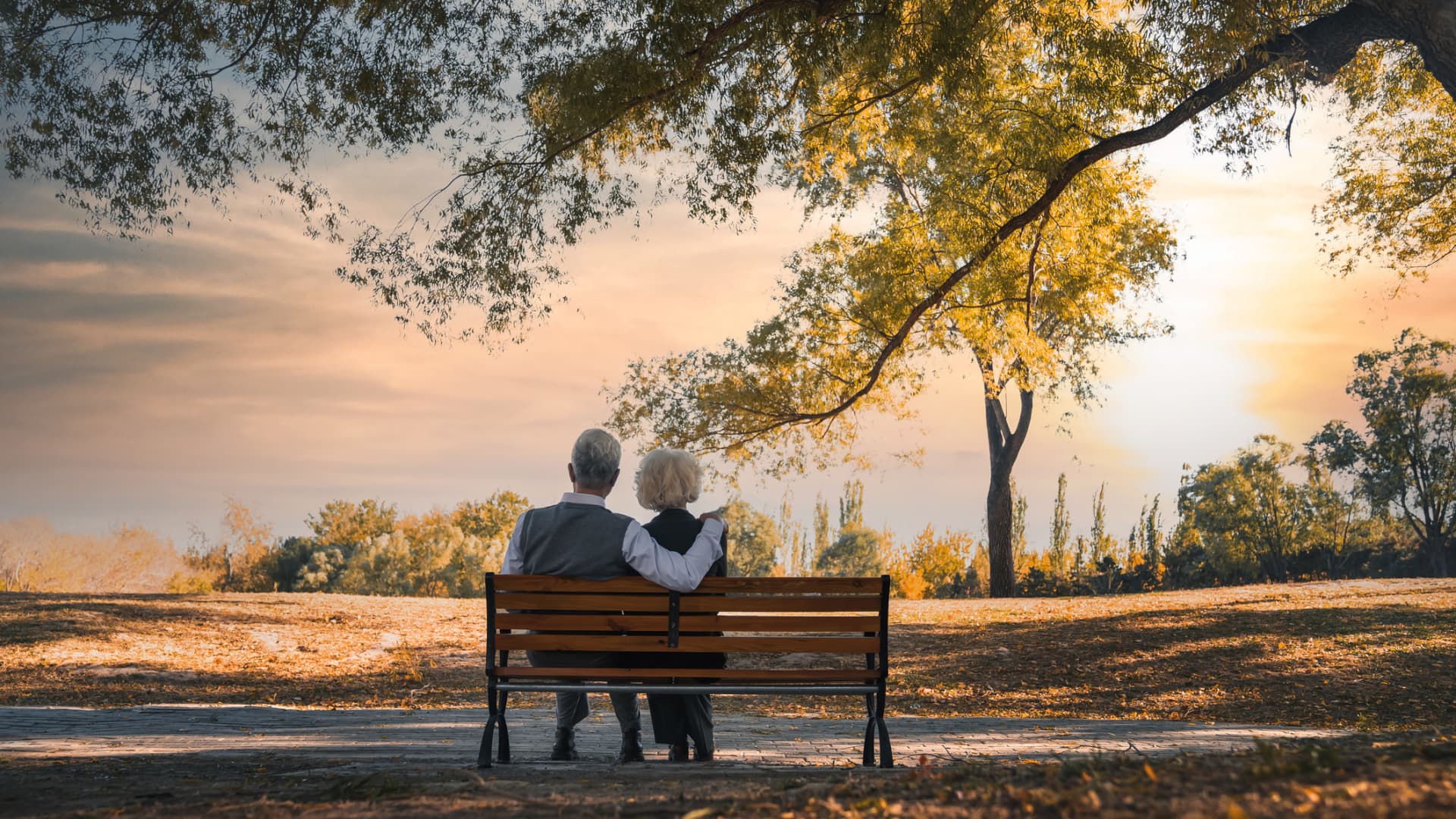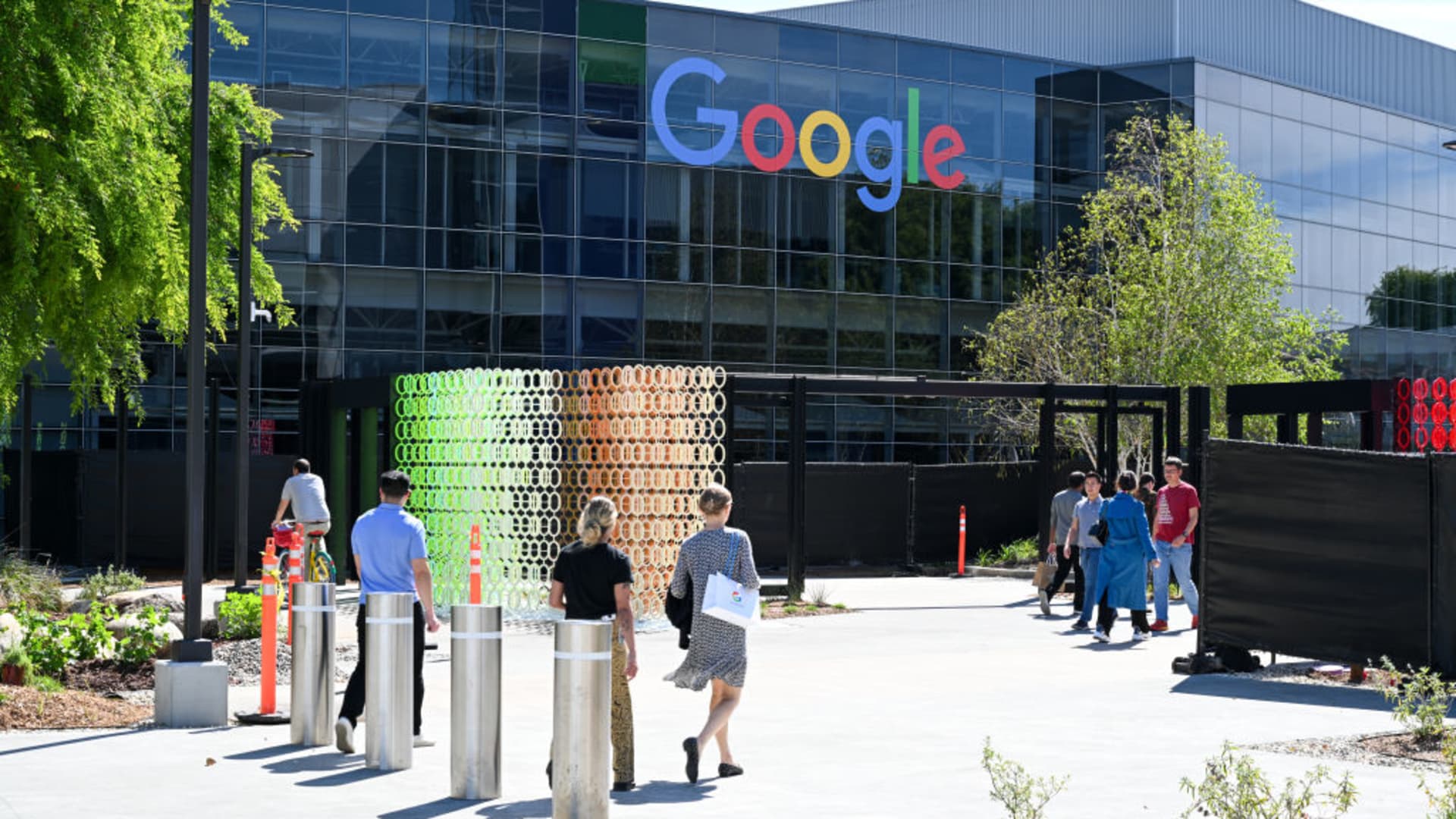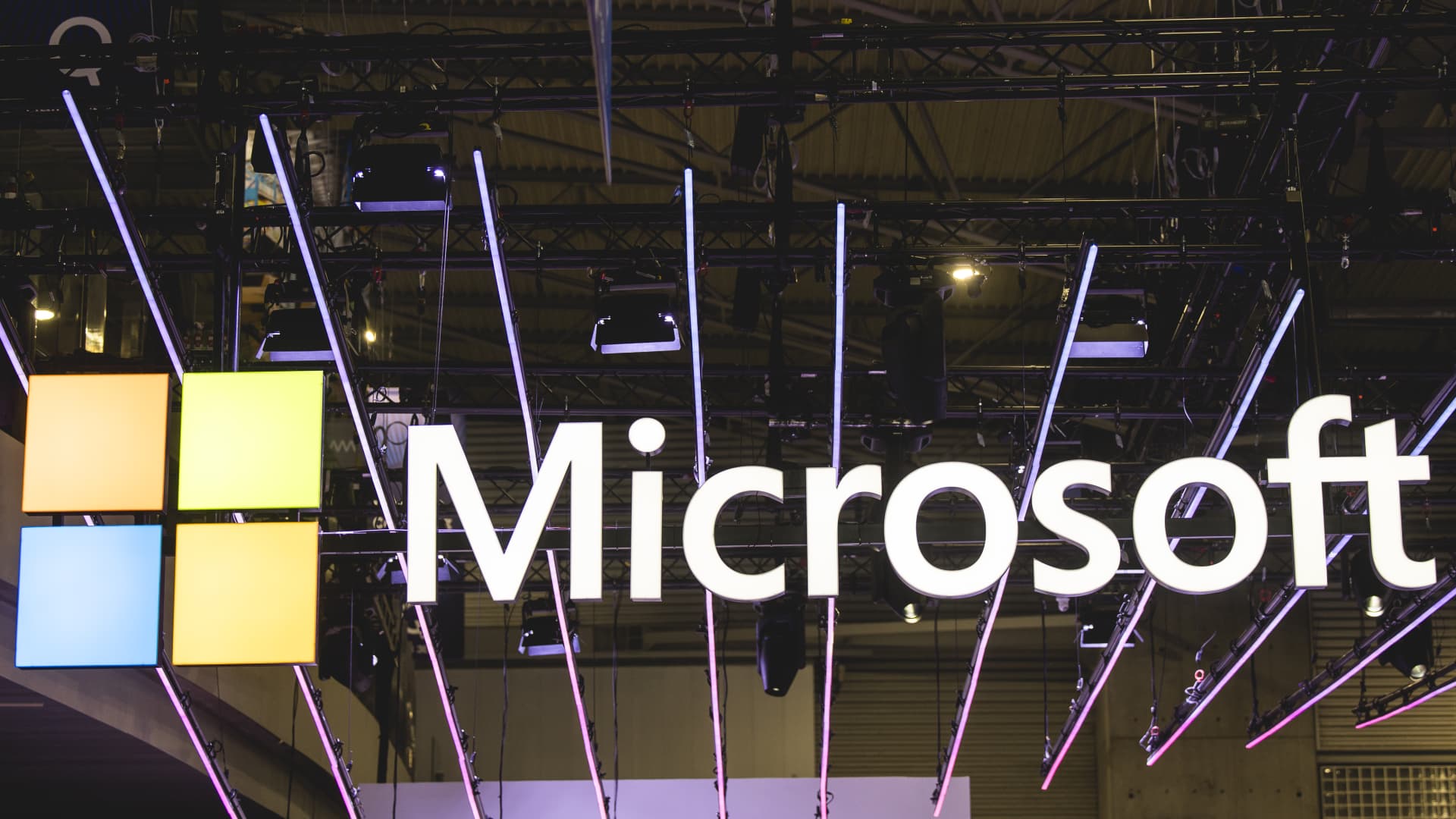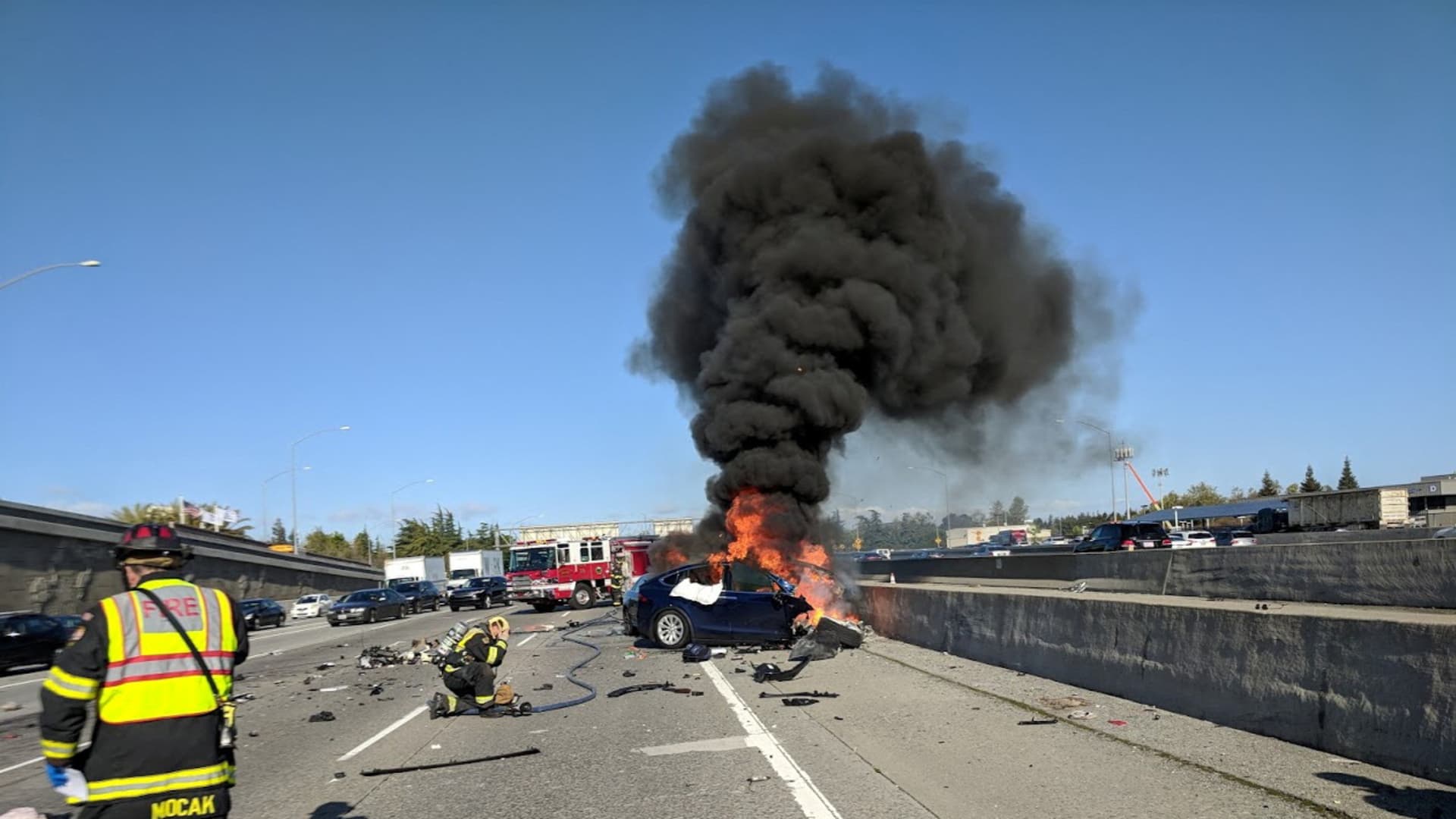Russian President Vladimir Putin at an expanded Prosecutor General’s Office meeting on March 26, 2024, in Moscow.
Contributor | Getty Images News | Getty Images
Russia has been firming up its narrative that Ukraine was behind a deadly terrorist attack in Moscow last week, a move that was widely expected by political experts who said Russia would likely use the tragedy to further domestic support for the war against Ukraine.
It’s gone one step further, however, with senior Kremlin officials claiming that the West conspired with Ukraine to carry out the attack on the Crocus City Hall concert venue last Friday in which gunmen killed 140 people.
An investigation into the attack is ongoing, but the latest, outlandish accusations give Moscow a problem: it now has to find the evidence to back up its unsubstantiated claims.
What’s particularly awkward for the Kremlin is that the Islamic State militant group has already claimed responsibility for the attack. Eight suspects, mostly nationals of Kyrgyzstan and Tajikistan, have been charged with terrorism offences and remanded in custody ahead of trial.
“Going forward, it is important to watch whether Russian investigators present any evidence of any alleged Ukrainian/Western involvement,” said Andrius Tursa, Central and Eastern Europe advisor at consultancy Teneo.
“In such a case, Putin would likely have to follow through on his promises to punish those responsible for the attack, which could escalate the war in Ukraine and heighten tensions with the West,” he said.
Ukraine denies any involvement in the attack, saying it was “absolutely predictable” that Moscow would look to blame it. The White House said that Ukraine had “no involvement whatsoever” in the attack and that any claim to the contrary was “Kremlin propaganda.” The U.K.’s foreign secretary, David Cameron, said on social media platform X “Russia’s claims about the West and Ukraine on the Crocus City Hall attack are utter nonsense.”
Russia doubles down
The propaganda has certainly been ramped up in the aftermath of the attack, during which gunmen entered the Crocus City Hall venue, shot concertgoers and set fire to the auditorium.
A raft of senior Russian officials and pro-Kremlin media have alleged this week that Ukraine, the U.K. and U.S. somehow coordinated attack in a bid to destabilize Russia and sow panic.
On Monday, Russian President Vladimir Putin conceded that “radical Islamists” had carried out the attack but insisted that Ukraine and its Western backers were linked to it, without presenting evidence.
Then on Tuesday, the head of Russia’s Federal Security Service, Alexander Bortnikov, claimed that the U.S., U.K. and Ukraine were behind the attack, saying it was beneficial to Western intelligence services and Kyiv as it sowed panic in Russian society. He also did not present evidence to back his claim.
Russian Security Council Secretary Nikolai Patrushev and President Vladimir Putin during a meeting with the BRICS countries’ senior officials in charge of security matters at the Kremlin in Moscow on May 26, 2015.
Sergei Karpukhin | AFP | Getty Images
Close Putin ally and nationalist ideologue Nikolai Patrushev — the secretary of Russia’s Security Council who’s in charge of issuing guidance and policy proposals on national security issues — was also asked by Russian reporters whether Ukraine or the Islamic State group was behind the attack.
“Of course Ukraine,” Patrushev answered, according to a Google-translated article from news agency RIA Novosti.
On Wednesday, Russian Foreign Ministry spokesperson Maria Zakharova claimed the U.S.′ initial rejection of any Ukrainian involvement was suspicious and said the Islamic State group was created by the West. Yet, the Kremlin’s press secretary, Dmitry Peskov, refused to comment on the alleged Ukraine link, or to state how Russia would respond if it confirmed Ukraine’s involvement.
Peskov told CNBC on Wednesday that the Kremlin is awaiting the results of an investigation before it comments, stating in an email: “An investigation is underway. The final version has not yet been announced.”
Political analysts say Moscow appears desperate to deflect attention from the fact that its intelligence services failed to spot or prevent the Moscow terror plot, and ignored a warning from U.S. intelligence several weeks ago that an attack could be imminent.
“Russian President Vladimir Putin and other senior Kremlin officials appear to be struggling to maintain a consistent rhetorical line about the Crocus City Hall attack, indicating that the Kremlin has not fully figured out how to reconcile its information operations with the reality of its intelligence and law enforcement failure,” analysts at the Institute for the Study of War noted Tuesday.
“Putin and other senior officials have not fully coalesced around the false narrative that Ukraine somehow conducted the March 22 attack,” the ISW said, noting that the “oscillation between blaming Ukraine outright one day and then avoiding the issue the following day suggests that the Kremlin has not yet established a templated line on how to discuss the attack, likely partially as a result of the shock felt by the Russian elite in its aftermath.”
Conspiratorial thinking
Despite the claim by IS to have carried out the attack, high-profile Russian media commentators have said the massacre was not typical of IS terrorist attacks, citing the fact the attackers were not wearing suicide belts and did not appear to be religious fanatics.
According to the Tass news agency, RT Editor-in-Chief Margarita Simonyan, who is among those questioning the attackers’ identities, posted a video on her Telegram channel in which one of the suspects claimed he was offered 500,000 rubles ($5,400) to carry out the attack, insinuating the motive was financial rather than ideological. The suspects appeared in court earlier this week looking beaten and bruised. It’s unclear whether the reported video was filmed under duress.
Russian media personalities have also parroted the line that the attackers tried to flee toward Ukraine, a line disputed, unusually, by Putin’s close ally, Belarusian President Alexander Lukashenko, who said the attackers originally fled toward Belarus but had been forced to change direction, toward Ukraine, because of Belarus’ enhanced security measures.
This combination of pictures created on March 24, 2024 shows (Clockwise from top L) Rachabalizoda Saidakrami, Dalerdjon (alternatively spelled Dalerdzhon) Barotovich Mirzoyev, Muhammadsobir Fayzov and Shamsidin Fariduni suspected of taking part in the attack of a concert hall that killed 137 people, the deadliest attack in Europe to have been claimed by the Islamic State jihadist group, sitting inside the defendant cage as he waits for his pre-trial detention hearing at the Basmanny District Court in Moscow overnight March 24 and 25, 2024.
Tatyana Makeyevaolga Maltseva | Afp | Getty Images
Analysts say that, despite the discrepancies and anomalies in the narrative, the Kremlin is unlikely to retreat from its false claim of Ukrainian and Western involvement in the massacre.
“Such conspiratorial thinking in Russia, sadly, is something that has been rather endemic to society there since the collapse of the Soviet Union, and is something which isn’t going to go away and Putin will seek to feed on this,” Max Hess, fellow at the Foreign Policy Research Institute and author of “Economic War: Ukraine and the Global Conflict Between Russia and the West,” told CNBC on Wednesday.
“The Kremlin is not going to back away from this conspiratorial view that, ‘even it was Islamists that carried out the attack, it was the CIA or some other foreign agencies that ordered it together with the Ukrainians,'” he added.
“I also think we should be clear that there’s probably a good chance that Putin himself genuinely believes some of this paranoid thinking. His level of paranoia is something that I think hasn’t been properly appreciated in the last few years. I’m not saying that that’s something that we should just accept but I do think when it comes to dealing with Putin, we have to understand that, more and more, he lives in his own reality.”
